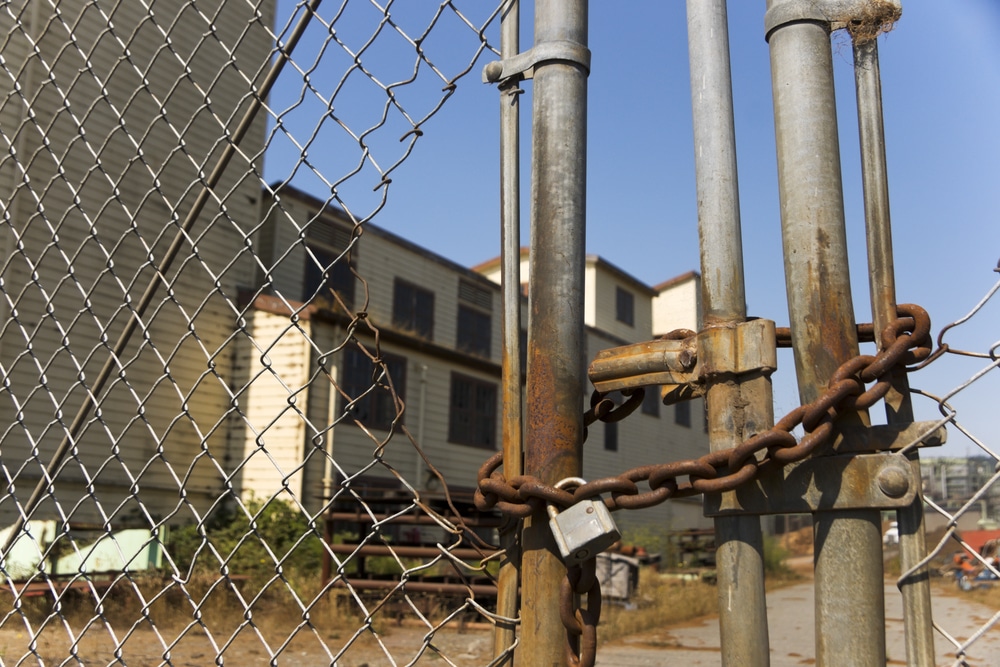


North Carolina Eminent Domain and Condemnation Lawyers: Protecting Property Owners’ Rights
The state of North Carolina routinely engages its eminent domain powers to make it possible to build or improve the infrastructure of roads, bridges, overpasses, highways, and other public use structures. However, these eminent domain condemnations often negatively impact landowners whose properties are partially or entirely taken by the NCDOT. If your property has been affected by government condemnations in North Carolina, it is crucial to reach out to an eminent domain attorney, such as the ones at Hansen, Howell & Wilkie, PLLC, to ensure your rights are protected.
What Is Eminent Domain?

Eminent domain is a government entity’s legal authority to take private property and convert it to public use. Through eminent domain, the government has the power to acquire land from private owners and take ownership of the property regardless of whether the landowner consents to the sale or disagrees with it. This process is allowed when the government entity plans to use the condemned land in a project that will benefit the public in some capacity, such as the expansion of a highway or the construction of a school.
However, the government or the condemning agency (such as the North Carolina Department of Transportation) cannot simply take possession of the land without offering just compensation for the landowner. Property owners have the constitutional right to be fairly compensated for their land and may also be eligible for additional damages compensation in some cases.

How Does Condemnation Work in Eminent Domain Cases?


The difference between eminent domain and condemnation is that eminent domain is the power of the government to take private property for public use, while condemnation is the actual process of acquiring the property. Condemnation in eminent domain cases is the legal process by which the government acquires property for public use.
The process begins with an offer for the property based on its fair market value. If the owner does not accept the offer, the government can take possession of the property and pay the owner through the courts by placing the money in an escrow account. For instance, if the government decides to construct a new highway, it may use eminent domain to acquire land from private owners in order to complete the project. This is a common occurrence in North Carolina, as seen in various Department of Transportation projects across the state.
What are My Options as a Property Owner if I’m Facing Eminent Domain Condemnation?

If you own a property that is affected by a possible eminent domain condemnation, you may have a few different options to challenge the taking of your land. Each condemnation case is unique, so it is best to work with an attorney who can advise you on the best course of action for your situation.
As a property owner, you may be able to appeal the condemnation decision and ask the court to review the case. In some cases, you may also be able to question the government’s reasons for taking the property, such as whether the proposed project is truly for the benefit of the public and whether the taking is necessary. Most commonly, property owners are able to challenge the amount of compensation offered by the government. This may require hiring an independent appraiser to reassess your property to accurately reflect its fair market value as well as its highest and best use.

When you work with our firm, you can count on receiving the legal help you need with no money upfront. We don’t charge for a retainer; we only get paid when we recover more money than you were offered.
Our attorneys are well-versed in all aspects of eminent domain laws and are prepared to dissect and attack the NCDOT’s offers and appraisals.
We focus on protecting our clients’ rights and helping them obtain maximum compensation for their condemned properties. We only win when you win!
Whether you are gearing up for a legal battle against the North Carolina DOT or simply have questions, you can count on our firm for solid legal advice.
With our legal team on your case, you can rest assured we will represent your interests before the government and put our skills to work on your behalf.
We know you are going through a lot and risking losing your property. When you choose our firm, you can expect to be treated with professionalism and respect every step of the way.
When you work with our firm, you can count on receiving the legal help you need with no money upfront. We don’t charge for a retainer; we only get paid when we recover more money than you were offered.
Our attorneys are well-versed in all aspects of eminent domain laws and are prepared to dissect and attack the NCDOT’s offers and appraisals.
We focus on protecting our client’s rights and helping them obtain maximum compensation for their condemned properties. We only win when you win!
Whether you are gearing up for a legal battle against the North Carolina DOT or simply have questions, you can count on our firm for solid legal advice.
With our legal team on your case, you can rest assured we will represent your interests before the government and put our skills to work on your behalf.
We know you are going through a lot and risking losing your property. When you choose our firm, you can expect to be treated with professionalism and respect every step of the way.
Why Should I Hire an Eminent Domain Attorney for My Case?


Losing your property because the government has different plans for it can be a heartbreaking situation, especially when your property has been passed down from generation to generation. Unfortunately, all the emotional implications of losing your property seem to matter very little to the government or the condemning agency. These entities are often equipped with a team of engineers, consultants, appraisers, and attorneys who are eager to do whatever it takes to acquire land as quickly and cheaply as possible.
At Hansen, Howell & Wilkie, PLLC, we understand what you are going through, and we also know that you couldn’t possibly fight back on your own without the help of a skilled legal team representing you. With so much at stake, you need to act quickly and leverage the skills and experience of a strong eminent domain and condemnation attorney to maximize your chances of a positive outcome.
What Makes Hansen, Howell & Wilkie, PLLC, Different?

At Hansen, Howell & Wilkie, PLLC, our attorneys have been representing property owners for decades. Our primary focus is on helping clients protect their constitutional rights in the face of eminent domain takings.
We are all too familiar with how government agencies and the NCDOT operate in terms of condemning private property for public projects, and we have leveraged our knowledge to secure top compensation for our clients – usually well above the initial offer they received. If you have been notified that your property is part of an eminent domain project, don’t let the government take your land and underpay you without respecting your rights. Act quickly and reach out to our firm by calling 984-205-8453 and requesting a free case analysis.

How is a property chosen for condemnation?
In North Carolina, a property may be selected for condemnation if it is needed for the execution of a project said to be for public use or benefit. For example, if the local government believes it is necessary to add a third lane to a highway, all properties alongside that highway may need to have a portion of frontage taken to allow for the construction of the highway. In some cases, properties or entire neighborhoods can be deemed blighted and thus be selected for a redevelopment project.
What is the process for the government to acquire property through eminent domain?
The process for the government to acquire a property through eminent domain usually begins with a written notice and purchase offer, which gives the owner an opportunity to respond. If negotiations between the property owner and the government entity fail to reach an agreement, the government can initiate condemnation proceedings in court. During these proceedings, the government should demonstrate that the property is needed for public benefit and must also demonstrate that the owner has been offered fair compensation. If the court decides in favor of the government, the condemnation process is completed, and the owner receives compensation for their land.
How is just compensation determined in eminent domain cases?
Just compensation in eminent domain cases is determined by considering the fair market value of the property. In addition, other factors such as the current market value, the potential for future development, the future market value after the land has been developed, and any improvements made to the property should also be taken into account. Unfortunately, government appraisers may sometimes present low valuations and use questionable methods in an attempt to acquire properties as cheaply as possible, but an attorney can assist the property owner in disputing the government’s appraisal and seeking a better offer.
Can the property owner challenge the government’s decision to condemn their property?
The property owner has the right to challenge the government’s decision to condemn their property. This can be done in a few different ways, such as by presenting evidence in court that the condemnation is not for a public purpose or that the compensation offered is not fair. However, challenging the government without legal representation is extremely difficult. Our firm has an experienced team of attorneys who specialize in eminent domain law and can provide you with the legal advice you need to protect your rights and interests.
What are the constitutional rights of a property owner during the condemnation process?
The Fifth Amendment of the United States Constitution states that private property is not to be taken for public use without just compensation. This means that if the government wants to take a person’s property for a project, it must pay the owner fair market value for the property. In addition, the Fourteenth Amendment of the United States Constitution gives property owners the right to due process. This means that the government must provide the property owner with appropriate notice of the proceedings and also give them a reasonable opportunity to be heard.
How is the concept of public use applied to eminent domain acquisitions?
The concept of public use is applied to eminent domain acquisitions when the government can demonstrate that the acquisition is necessary for a public purpose. This concept has been interpreted by different jurisdictions in different ways to mean “for public benefit,” – meaning the intended project would indirectly benefit the public in some way rather than providing direct access to members of the public.
Can a property owner lose their property through eminent domain if they do not want to sell?
Eminent domain gives the government the power to acquire almost any property as long as the requirements for condemnation are met. That even includes properties whose owners are not in agreement with the acquisition. Because eminent domain projects often require the taking of some or all of a property that may have sentimental or historical significance for an owner, it is quite common for owners not to want to sell. However, that does not mean the government cannot take ownership of the property – the condemnation process usually continues, and the money meant to be paid to the property owner as just compensation may be placed in an escrow account until the case is settled.
Can the government use the notion of blight to abuse its eminent domain powers?
Eminent domain abuse is nothing new and has unfortunately been common throughout the decades. One way the government may abuse its eminent domain powers is by declaring a whole thriving, well-maintained neighborhood as blighted – as seen in the infamous case of the historic Mill Creek community in Saint Louis, MO, in the 1950s. Eminent domain abuse cases are plentiful and a constant source of public outcry across the country, with more recent cases such as Kelo vs. the City of New London (2005) causing many states to revisit their legislation.























